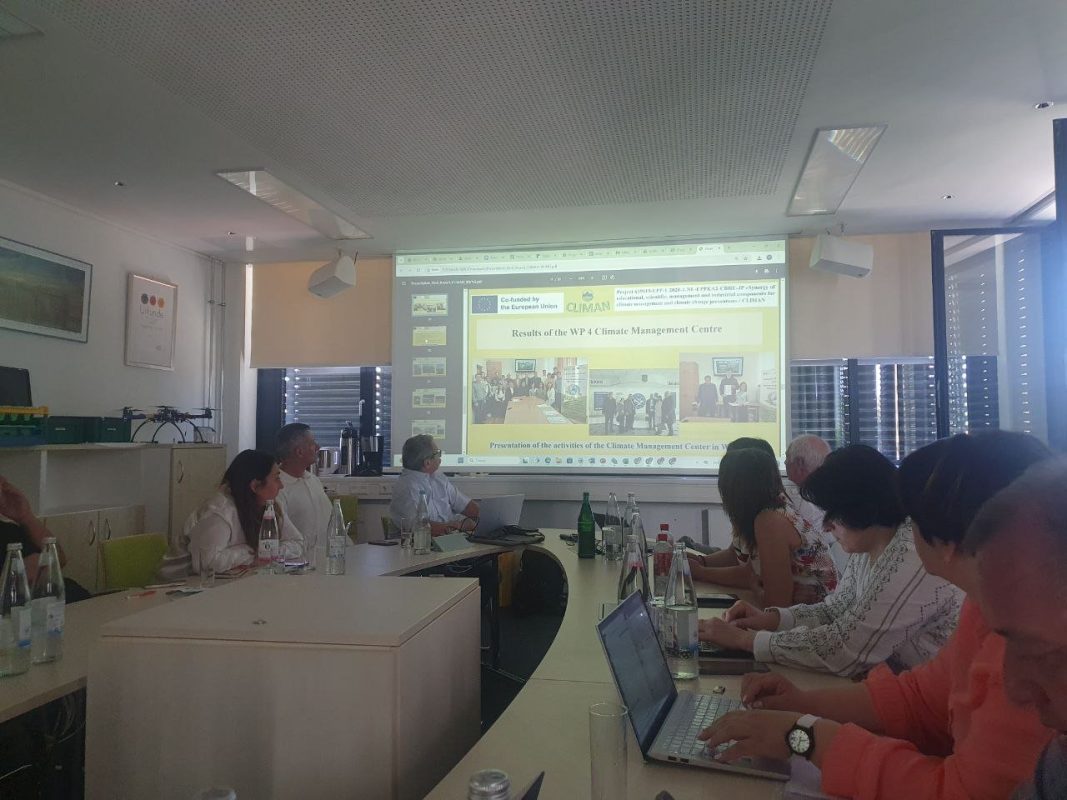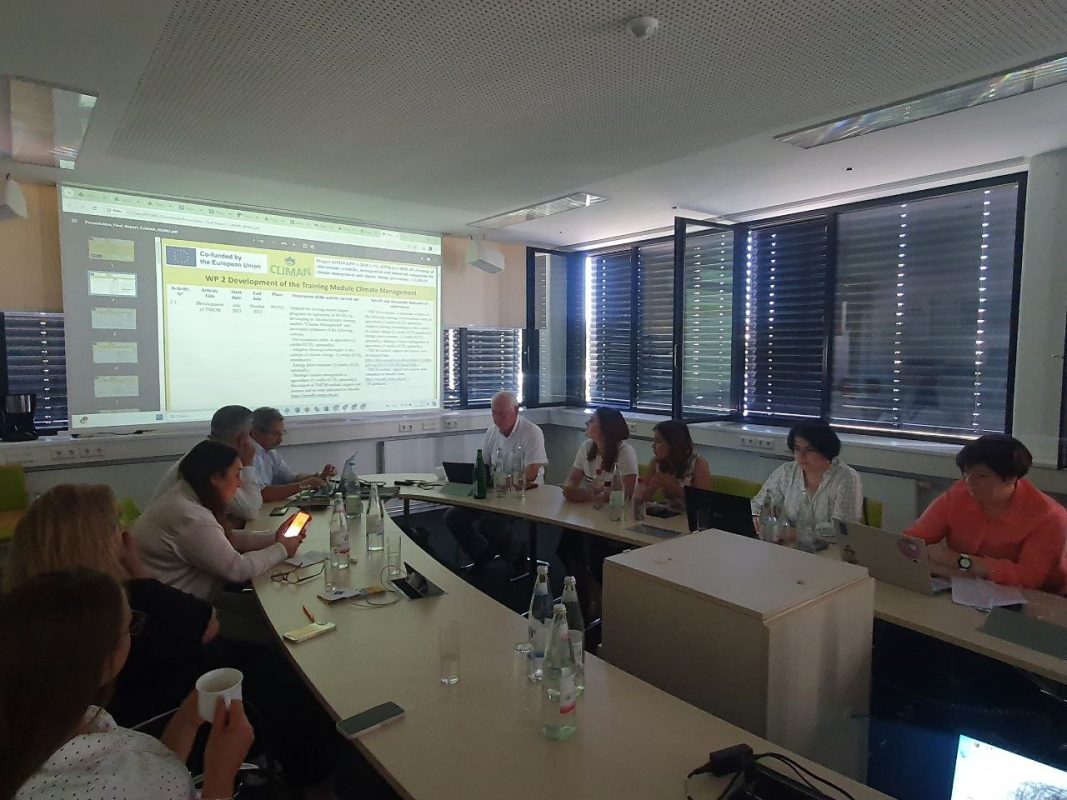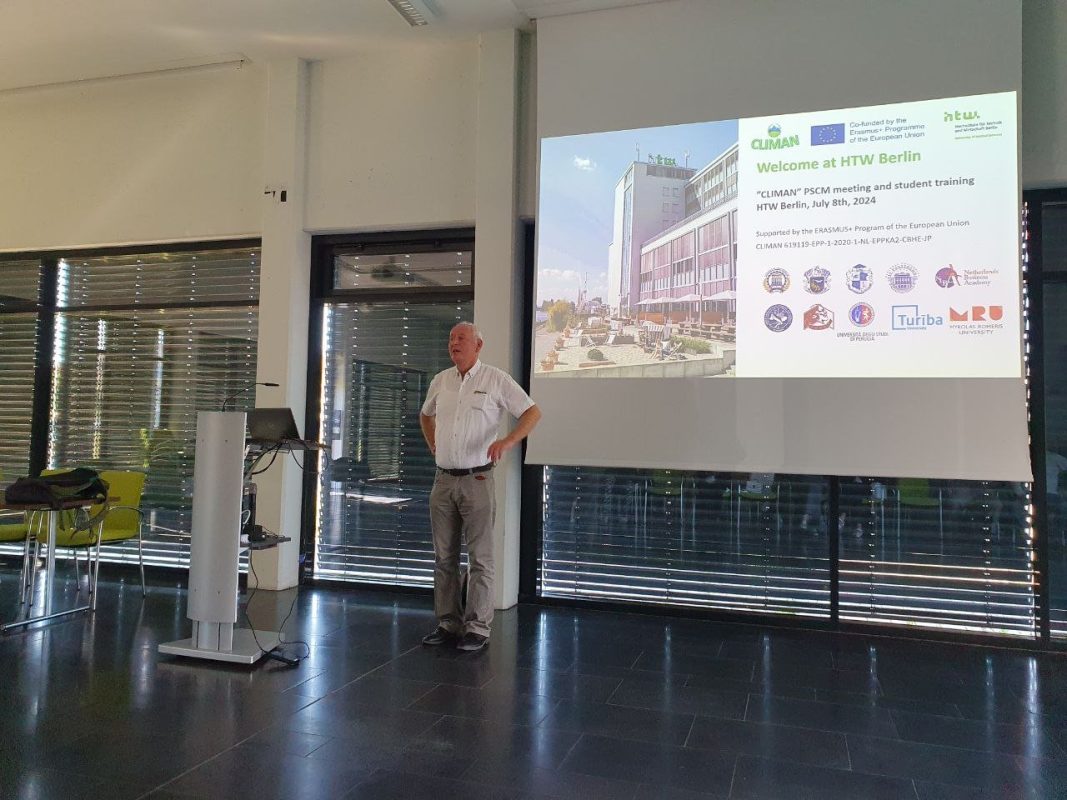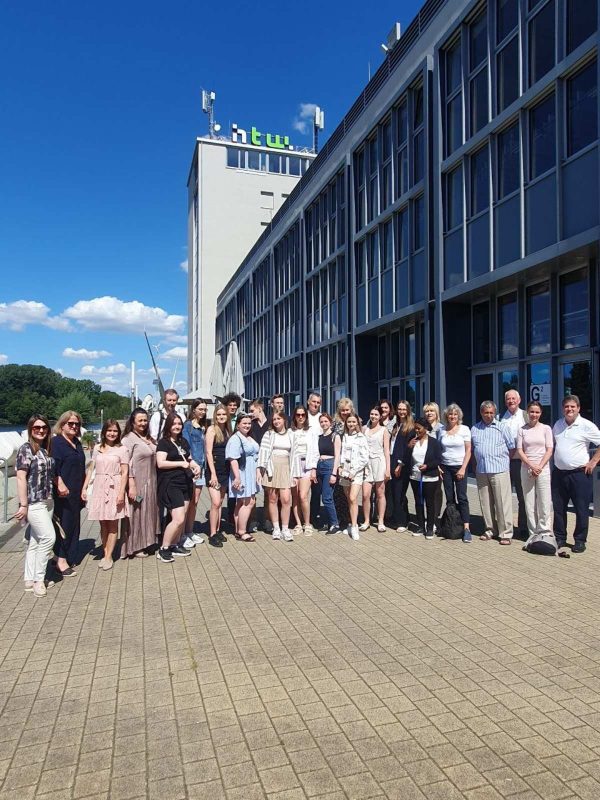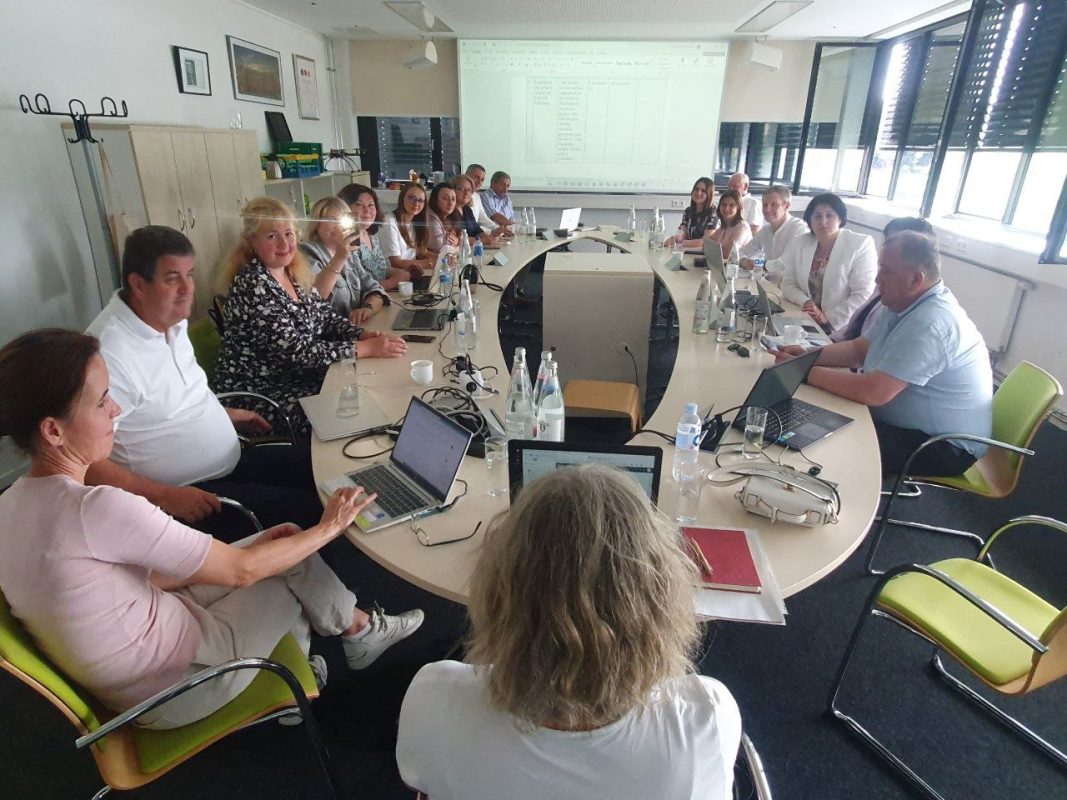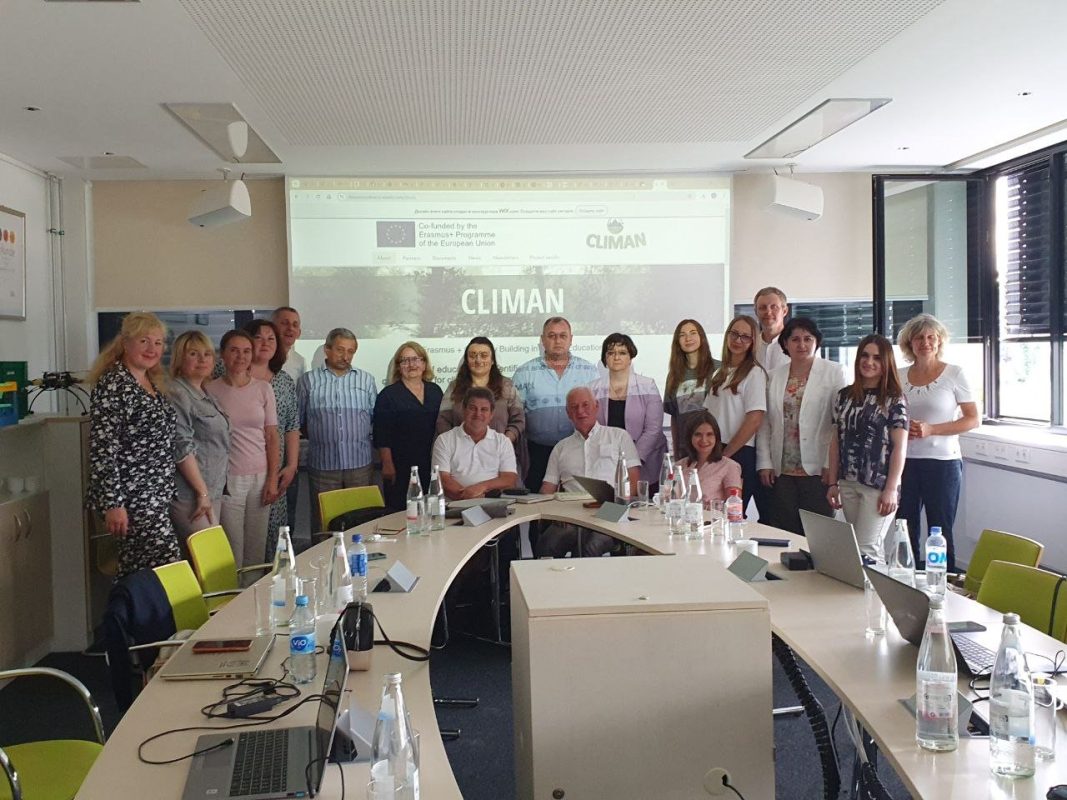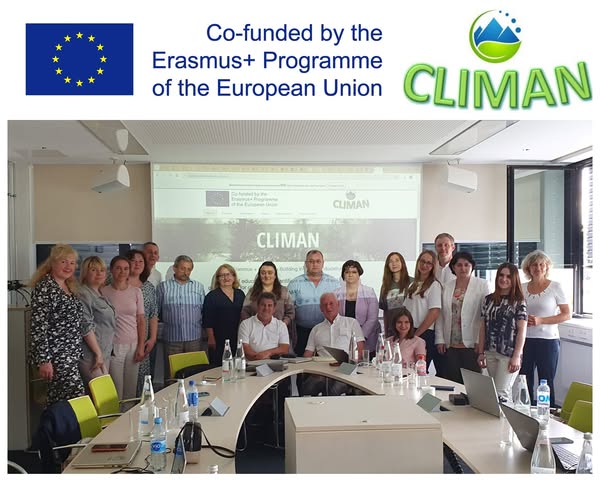Recently, a meeting of the Steering Committee of the Erasmus+ CBHE Project CLIMAN was held. The event was held at HTW Berlin University Of Applied Sciences (Germany), within the framework of the project 619119-EPP-1-2020-1-NL-EPPKA2-CBHE-JP “Synergy of educational, scientific, managerial and industrial components for climate management and climate change prevention”. The aim of the project is to help universities in Georgia and Ukraine become centers for the development of climate management research to accelerate integration into the global climate market and implement global climate regulation requirements by implementing best European practices in climate change mitigation, adaptation, and mitigation.
The meeting was attended by representatives of each of the partner universities of the consortium, namely: University of Foggia, Italy; University of Applied Sciences, Germany; Mykolas Romeris University, Lithuania; University of Turiba, Latvia; Kharkiv National Automobile and Highway University, Ukraine; Lviv Polytechnic National University, Ukraine; Akaki Tsereteli Kutaisi State University, Georgia; Shota Rustaveli Batumi State University, Georgia.
The project coordinator from the Western Ukrainian National University, Dr. Olena Borysiak, and PhD, Associate Professor Ulyana Tkach reported on the preparation and presentation of the final report, which includes a detailed analysis of the results achieved during the project.
Particular attention was paid to ensuring sustainable development and continuation of the project after its completion. Possibilities of attracting additional resources, supporting the network of partners, and integrating the project’s achievements into the long-term development strategies of the participating institutions were discussed.
At the end of the discussion, it was concluded that the project results will be effectively used after its completion, contributing to the further development of higher education and international cooperation.
The project is co-financed by the European Union. However, the expressed views and opinions belong solely to the authors and do not necessarily reflect the views of the European Union or the European Education and Culture Executive Agency (EACEA). Neither the European Union nor the grantor can be held responsible for them.
